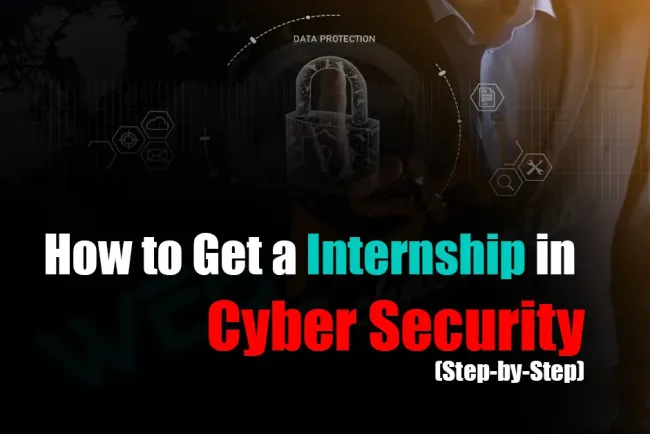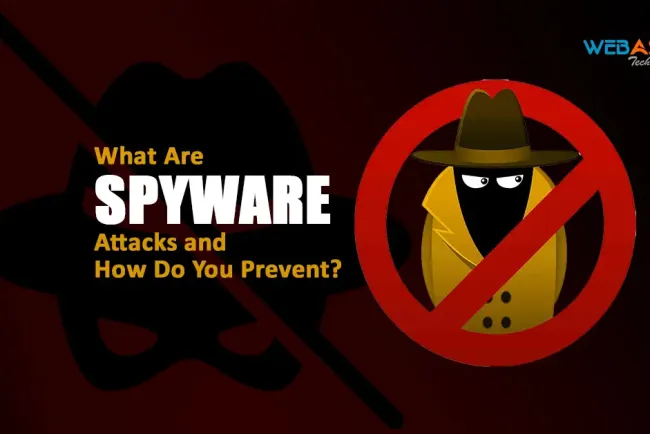How to Get Into Ethical Hacking with No Experience? A Complete Beginner’s Guide to Start a Cybersecurity Career
Ethical hacking is a high-demand field, and many aspiring professionals wonder if they can enter the industry without prior IT experience. The answer is yes! Ethical hacking is open to anyone willing to learn, practice, and build their skills. This blog provides a step-by-step guide on how to become an ethical hacker from scratch, covering essential cybersecurity fundamentals, networking knowledge, Linux proficiency, and scripting basics. It also highlights the best learning resources, ethical hacking tools, and certifications such as CEH, Security+, and OSCP, which can boost career opportunities. Additionally, practical experience through Capture The Flag (CTF) challenges, bug bounty programs, and penetration testing labs can help beginners develop real-world skills. Finally, we discuss how to create a cybersecurity portfolio and apply for entry-level jobs like Security Analyst, Penetration Tester, and SOC Analyst. By following this roadmap, anyone can successfully transition into eth

Table of Contents
- Introduction
- What is Ethical Hacking?
- Why Ethical Hacking is a Great Career Choice?
- Step-by-Step Guide to Becoming an Ethical Hacker with No Experience
- Conclusion
- FAQs
Introduction
Ethical hacking is one of the most exciting and in-demand career paths in cybersecurity. Many people believe that you need an IT background or a degree in computer science to become an ethical hacker. However, this is a misconception. With the right approach, even beginners with no experience can learn ethical hacking and build a successful career in cybersecurity.
In this guide, we will cover how to start ethical hacking with no prior experience, the essential skills required, the best learning resources, and how to land your first job as an ethical hacker.
What is Ethical Hacking?
Ethical hacking is the process of testing computer systems, networks, and applications to identify security vulnerabilities before cybercriminals exploit them. Ethical hackers, also known as white-hat hackers, use their skills to strengthen cybersecurity defenses.
Unlike black-hat hackers, who use their skills for illegal purposes, ethical hackers follow legal and ethical guidelines to protect organizations from cyber threats.
Why Ethical Hacking is a Great Career Choice?
- High Demand: With increasing cyber threats, companies need ethical hackers to protect their systems.
- Good Salary: Ethical hackers earn competitive salaries, even at entry levels.
- Exciting Work: Ethical hacking involves solving real-world security problems, making it a highly engaging field.
- No Degree Required: You can become an ethical hacker through self-learning and certifications.
Step-by-Step Guide to Becoming an Ethical Hacker with No Experience
Step 1: Learn the Basics of Cybersecurity
Before diving into ethical hacking, you must understand the fundamentals of cybersecurity. Start with:
- Networking Basics – Learn how data flows through networks.
- Operating Systems – Gain experience with Windows and Linux.
- Cyber Threats – Understand malware, phishing, and common security threats.
- Security Concepts – Learn about firewalls, encryption, and access control.
Recommended Resources:
- "The Basics of Hacking and Penetration Testing" by Patrick Engebretson
- WebAsha Ethical Hacking Course
- TryHackMe and Hack The Box platforms
Step 2: Get Comfortable with Linux and Command Line
Most ethical hacking tools run on Linux-based operating systems like Kali Linux and Parrot OS. You should learn:
- Basic Linux commands
- File system navigation
- User management
- Bash scripting
Recommended Resources:
- Linux Command Line Basics (Udemy)
- "Linux Basics for Hackers" by OccupyTheWeb
Step 3: Learn Basic Programming
While you don’t need to be an expert coder, learning basic programming can help you understand security vulnerabilities. Start with:
- Python – Used in scripting and automation.
- Bash – Useful for Linux scripting.
- JavaScript – Helps in web application security.
Recommended Resources:
- Python for Beginners (YouTube, Udemy)
- "Black Hat Python" by Justin Seitz
Step 4: Understand Ethical Hacking Tools and Techniques
Familiarize yourself with popular ethical hacking tools:
| Tool | Purpose |
|---|---|
| Nmap | Network scanning |
| Metasploit | Exploitation framework |
| Burp Suite | Web security testing |
| Wireshark | Network traffic analysis |
| Hydra | Password cracking |
Recommended Resources:
- "Metasploit: The Penetration Tester’s Guide" by David Kennedy
- WebAsha Ethical Hacking Labs
Step 5: Earn Ethical Hacking Certifications
Certifications help you prove your skills to employers. Some beginner-friendly certifications include:
- Certified Ethical Hacker (CEH) – Best for foundational knowledge.
- CompTIA Security+ – Covers essential security concepts.
- OSCP (Offensive Security Certified Professional) – Advanced penetration testing.
Recommended Training:
- WebAsha Ethical Hacking Certification
- CompTIA Security+ (Udemy, Coursera)
Step 6: Build Hands-On Experience
The best way to gain hacking skills is through practical experience. Try:
- Setting up a home lab with Kali Linux.
- Participating in Capture The Flag (CTF) challenges on platforms like TryHackMe.
- Joining bug bounty programs on sites like HackerOne and Bugcrowd.
Step 7: Create a Cybersecurity Portfolio
A portfolio showcases your skills to potential employers. Include:
- A GitHub repository with your security scripts.
- A blog where you write about cybersecurity topics.
- Reports from your CTF challenges and bug bounty findings.
Step 8: Apply for Ethical Hacking Jobs
Once you’ve built your skills, start applying for jobs like:
- Security Analyst
- Penetration Tester
- SOC Analyst
- Vulnerability Assessor
WebAsha Technologies offers job placement assistance for cybersecurity students.
Conclusion
Getting into ethical hacking with no experience is possible with the right learning path. Start by understanding cybersecurity basics, learning Linux and networking, practicing with hacking tools, earning certifications, and building hands-on experience. Platforms like WebAsha Technologies offer structured ethical hacking courses and placement support, making it easier for beginners to start their careers.
By following this guide, you can successfully transition into the exciting world of ethical hacking and cybersecurity.
FAQs
What is ethical hacking?
Ethical hacking is legally testing computer systems for vulnerabilities.
Can I learn ethical hacking without IT experience?
Yes, with the right training, anyone can learn ethical hacking.
What is the best ethical hacking course for beginners?
CEH, WebAsha Ethical Hacking Course, and TryHackMe are great options.
How long does it take to learn ethical hacking?
It takes 3-6 months to learn the basics.
Do I need to learn coding for ethical hacking?
No, but learning Python and Bash scripting helps.
Which operating system is best for ethical hacking?
Kali Linux is widely used by ethical hackers.
Is ethical hacking legal?
Yes, when performed with permission and within legal boundaries.
What tools do ethical hackers use?
Nmap, Metasploit, Burp Suite, Wireshark, and Hydra.
What certifications are best for ethical hacking?
CEH, CompTIA Security+, and OSCP.
Where can I practice ethical hacking?
TryHackMe, Hack The Box, and WebAsha Ethical Hacking Labs.
Can I work as a freelancer in ethical hacking?
Yes, through bug bounty programs and freelance security projects.
What are some common cybersecurity threats?
Phishing, malware, ransomware, and SQL injection.
What salary can I expect as an ethical hacker?
Entry-level salaries range from $50,000 to $90,000 per year.
What skills are required for ethical hacking?
Networking, Linux, scripting, and problem-solving.
How do I start a career in ethical hacking?
Learn the basics, get certifications, and practice hacking tools.












![Top 10 Ethical Hackers in the World [2025]](https://www.webasha.com/blog/uploads/images/202408/image_100x75_66c2f983c207b.webp)

![[2025] Top 100+ VAPT Interview Questions and Answers](https://www.webasha.com/blog/uploads/images/image_100x75_6512b1e4b64f7.jpg)









